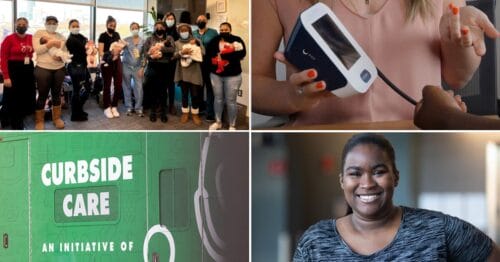People of Color With Disabilities Face Double Discrimination
August 24, 2023

Courtney Hale, GettyImages
Racism and ableism together create greater health disparities and call for stronger equitable practices that increase access and reduce costs.
The Bottom Line
People of color with disabilities face more discrimination and stigma than their white and/or non-disabled counterparts. Systemic factors of racism and ableism contribute to greater disparities in access to healthcare, leading to delays in access or simply going without care among people of color living with disabilities. Future policies that reduce costs, increase access to timely care, and boost provider competency are required to effectively meet the needs of this demographic.
Context
Adults living with disabilities — about 26% of the US population — are subject to discrimination in favor of able-bodied individuals. Ableism is further compounded by other forms of discrimination, especially among Black and/or Hispanic individuals. Individuals who are both disabled and Black and/or Hispanic experience less equitable care and more unmet needs than their non-disabled counterparts. These barriers include insurance and cost limitations, as well as poor patient-provider communication and a lack of culturally appropriate care. Though this is understood, there has been little research on health outcomes for people of color with disabilities to highlight the prevalence of double discrimination and related disparities.
Study Objective
Using data from a national survey, determine whether adults of color with disabilities have a higher risk of unmet healthcare needs than adults of color without disabilities.
The Details
Researchers from Boston Medical Center and the University of Colorado School of Medicine examined data from the 2018 National Health Interview Survey (NHIS), a representative survey of adults living outside of nursing homes or care facilities in the United States. From this data, researchers observed responses for the unmet healthcare needs of a sample of Black and Hispanic individuals with and without disabilities among a sample of 25,417 randomly selected individuals from the survey; one individual was selected per each household interviewed. There were four outcome measures for unmet needs: delay of care due to cost, go without care due to cost, delay of care due to lack of availability (e.g. long wait times), and go without services (i.e. medication, mental healthcare) due to cost.
Findings
For all who were surveyed, 11.5% of Black adults and 8.1% of Hispanic adults reported having a disability. Half of the adults surveyed were middle-aged, between 35 and 64 years of age. One fifth of respondents reported living in poverty, and the remaining majority were employed high-school graduates with private insurance.
People with disabilities delayed or missed care more often than people without disabilities in all racial/ethnic groups measured. For all non-Hispanic Black and Hispanic adults, nearly 1 in 3 of people with disabilities skipped services due to high costs. This finding may reflect the economic barriers faced by both communities of color and disability communities.
Pull Quote
“Racism and ableism are often thought of as parallel systems of oppression that work separately, yet this notion ignores experiences at the intersection of BIPOC and [people with disabilities] …our findings highlight the need to account for the intersection of these identities in future analyses to appropriately tailor programs and policies.”


